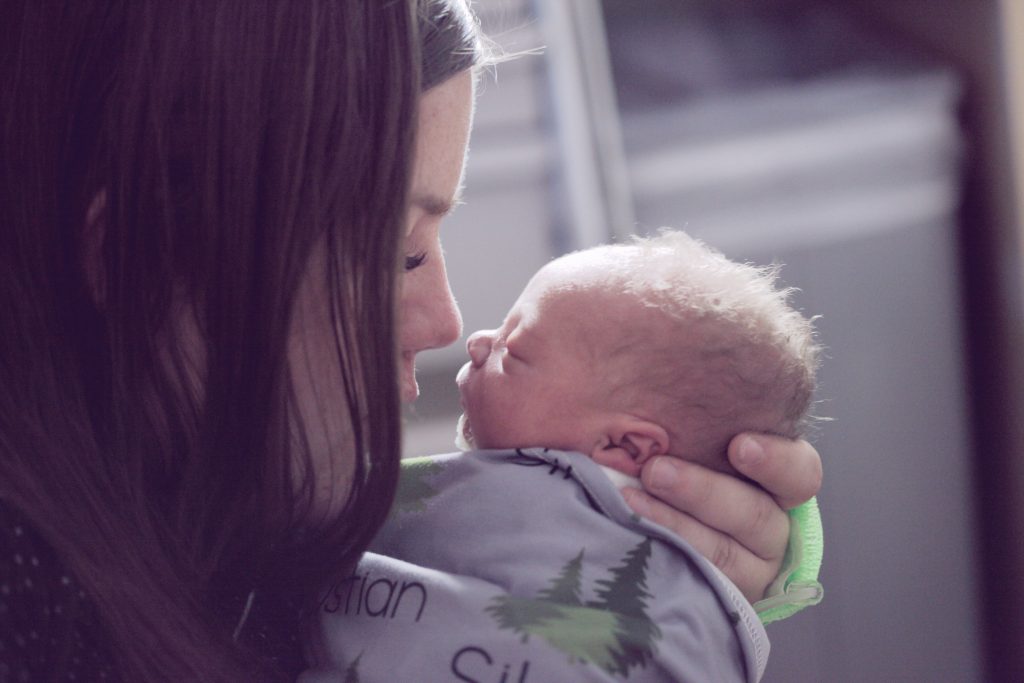
Bringing a new life into this world is an awe-inspiring moment that's often clouded by the unanticipated emotional turmoil of postpartum depression (PPD). If you find yourself feeling unusually despondent, anxious, or overwhelmed after giving birth, it's crucial to recognize that you're not alone in this struggle. Understanding the fine line between normal hormonal changes and symptoms of PPD is the first step toward healing. This guide is designed to walk you through the maze of emotions and help you find your footing again.
Understanding the Normal Hormonal Roller Coaster
The days and weeks following childbirth are a tumultuous time for a new mother's body, largely due to the dramatic hormonal shifts that occur. After delivery, estrogen and progesterone levels, which were significantly elevated during pregnancy, rapidly decline to their pre-pregnancy states. This swift change can significantly impact a mother's emotional and mental state, contributing to mood swings, feelings of sadness, and irritability. These symptoms, often referred to as the "baby blues," are a common experience for many new mothers as their bodies attempt to recalibrate. While unsettling, these feelings are typically short-lived, usually resolving within the first two weeks postpartum. It's crucial for mothers to recognize these hormonal fluctuations as a normal part of the postpartum period, understanding that these emotional responses are a direct result of their body's natural adjustment process.
Identifying the Signs of Postpartum Depression

Identifying the signs of postpartum depression requires a discerning eye, as its manifestations can be far more severe and persistent than those of the typical post-birth hormonal adjustments. Symptoms that might indicate the onset of PPD include a pervasive sense of despair, intense anxiety, or a profound detachment from your newborn, which might feel like an insurmountable gap. You may find yourself struggling with an overwhelming sense of inadequacy as a mother or harbor intrusive thoughts of harm towards yourself or your baby.
Unlike the transient nature of the "baby blues," these feelings linger well beyond the initial two weeks following childbirth. Recognizing these symptoms as potential indicators of PPD is a crucial step in advocating for your mental health. It’s imperative to understand that such experiences, while deeply distressing, are not reflections of your capability or love as a mother but signals that you may need support and treatment to navigate this challenging period.
When and How to Seek Help
If feelings of despair, intense anxiety, or detachment persist beyond the initial weeks following childbirth, it's imperative to initiate a conversation with a healthcare professional. This crucial step can pave the way to receiving the comprehensive care necessary for recovery. A doctor or mental health specialist can offer a tailored approach to treatment. This may encompass therapy sessions, medication, or a blend of both, depending on the individual's specific needs. Additionally, it's beneficial to openly discuss your experiences with close ones. Sharing your struggles not only fosters a supportive environment but also demystifies the challenges of PPD. It will encourage a collective effort in your recovery process. Engaging in dialogue about your feelings is not an admission of failure. It's a proactive measure towards reclaiming your well-being. Remember, seeking assistance is a proactive gesture of self-care and an important milestone on the path to healing.
Building Your Support System

Creating a strong network of support is crucial for mothers facing the challenges of postpartum depression. Identifying those in your life who can offer practical and emotional assistance is vital. Family members, friends, and even neighbors who understand what you're going through can be invaluable resources. They can provide a listening ear, share experiences, or help with daily tasks. This will make it easier for you to focus on recovery.
Consider joining a support group for new moms, where you can connect with others who are navigating similar experiences. These groups offer a safe space to express feelings and share coping strategies. Additionally, leveraging online communities can also provide support and information at any time of the day. It can make it easier to find encouragement even during late-night feedings. Embrace the help offered by those around you; it's a sign of strength to accept support when you need it the most.
Exploring EMDR Therapy
EMDR (Eye Movement Desensitization and Reprocessing) therapy has been gaining traction as a notable option for managing symptoms of postpartum depression, especially for individuals who have experienced traumatic events. This form of psychotherapy utilizes bilateral stimulation, such as guided eye movements, to help patients process and integrate distressing memories and traumas that may be contributing to their current emotional state.
For mothers grappling with PPD, EMDR offers a pathway to address underlying traumas that might be exacerbating their symptoms. This will facilitate a deeper healing process. It's essential to consult with a mental health professional skilled in EMDR to assess its suitability for your specific situation. This therapy is not a one-size-fits-all solution. For many, it provides a valuable tool in the recovery toolkit. This can offer a ray of hope for those feeling ensnared by the grip of postpartum depression. Engaging in EMDR could be a pivotal step toward emotional resilience and a more positive postpartum experience.
Self-Care Strategies for Managing Symptoms

Incorporating self-care into your routine is pivotal when navigating the complexities of postpartum depression. Focusing on nutrition by choosing balanced, nourishing meals can significantly impact your overall mood and energy. Engaging in physical activity can uplift your spirits and improve mental clarity. Even if it's a short walk around the neighborhood! Prioritize sleep whenever possible; although challenging with a newborn, seizing moments for rest can be rejuvenating. Carve out time for activities that replenish your soul, whether it's reading, soaking in a warm bath, or practicing mindfulness.
Even brief moments of self-indulgence can foster a sense of normalcy and personal well-being. Embrace these practices not as luxuries, but as essential components of your recovery journey. Acknowledge that caring for yourself empowers you to care for your baby with renewed strength and positivity.
Navigating Relationships and Setting Boundaries
In the throes of postpartum depression, the dynamics of your relationships may shift, underscoring the importance of clear communication and the establishment of boundaries. It's essential to express your needs and limits to those closest to you during this sensitive period. Asserting what you're comfortable with, be it declining social visits when you're not feeling up to it or requesting specific types of help, is crucial for your emotional health. Encourage an open dialogue with your partner, emphasizing the need for mutual understanding and support. Remember, setting boundaries isn't about pushing others away. It is about safeguarding your well-being and creating a nurturing environment for both you and your baby. Recognize that it's healthy and necessary to ask for space or assistance, and those who genuinely support you will honor these requests without judgment.
The Power of Trust and Letting Go

Navigating the tumultuous waters of postpartum depression often requires a deep dive into self-trust and the acceptance of help from others. It's a journey that illuminates the importance of acknowledging our human limitations and the strength found in vulnerability. Embracing the fact that perfection is an unattainable standard. This can free you from the self-imposed pressure that compounds the stress of new motherhood.
Trusting in your inherent capabilities as a mother and allowing yourself the grace to make mistakes can significantly lighten the emotional load of PPD.
Additionally, relinquishing some control and entrusting others with tasks, even those involving your baby, can foster a healthier, more balanced environment for everyone involved. This act of letting go not only helps in redistributing the weight of responsibilities but also in strengthening the bonds of trust with those around you. The journey through PPD is one of gradual healing, learning, and growing stronger in the realization that it's perfectly okay to not have all the answers, and that reaching out and opening up is a sign of resilience, not weakness.